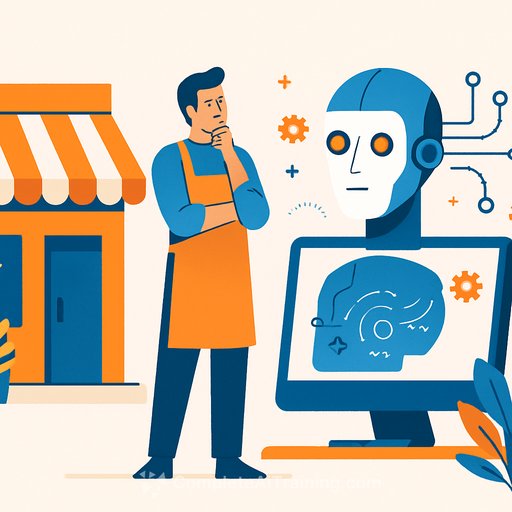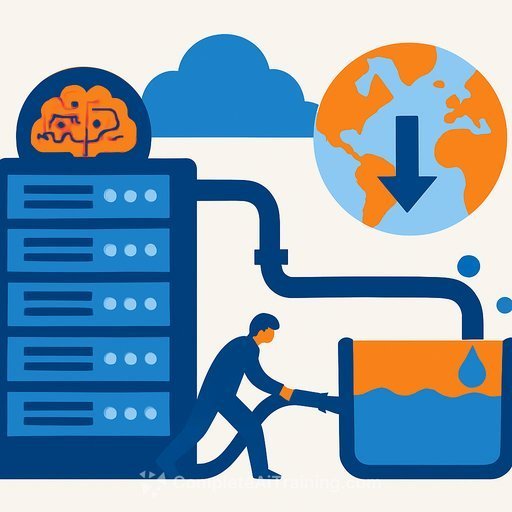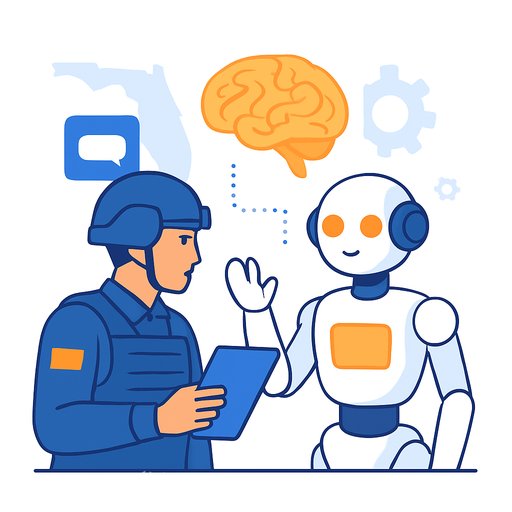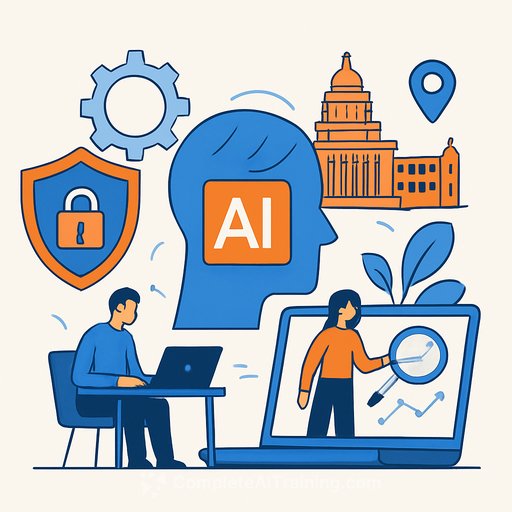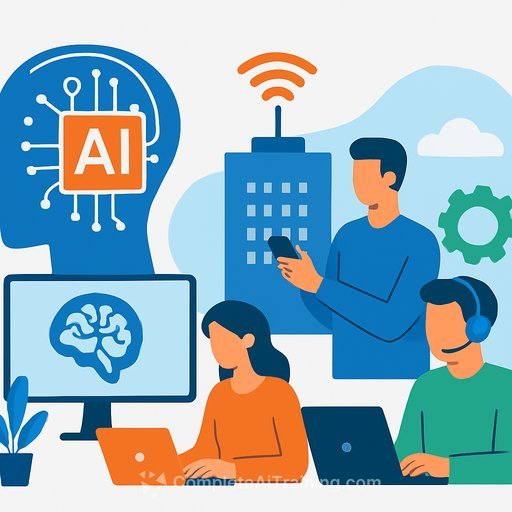Business AI Tools Are Changing Small Business Operations — But Are We Ready?
Artificial intelligence (AI) is no longer just a concept for the future. More small and medium-sized businesses (SMEs) in the UK and beyond are adopting AI-driven tools to simplify processes, enhance customer service, and stay competitive, especially in tough economic times.
From chatbots to inventory management, AI is leveling the playing field by offering affordable solutions that were once exclusive to large companies with dedicated IT teams and big budgets. However, many small businesses face challenges when integrating AI into their operations.
Automation Without the Price Tag
Previously, automating business processes required costly custom software, advanced CRM systems, or consultants — expenses many SMEs couldn’t afford. Now, off-the-shelf AI tools like Zapier, Notion AI, and Google Gemini make automation accessible without deep technical skills.
These tools help with tasks such as writing emails, scheduling meetings, analyzing customer data, and running payroll. AI-powered chatbots operate 24/7, handling bookings, answering common questions, and freeing staff to focus on more complex interactions.
Integrated into client portals, these chatbots provide customers with responsive, personalized service, allowing even the smallest companies to offer professional experiences comparable to larger firms.
Data-Driven Decisions Improve Business Outcomes
AI isn’t just about making tasks easier; it’s about providing valuable insights. Small businesses can now access analytics that were once only affordable for large enterprises. These tools analyze customer behavior, spending trends, and market shifts.
For example, a local clothing store using AI analytics can identify seasonal bestsellers, predict next quarter’s popular items, and adjust marketing campaigns in real time based on website traffic or social media engagement.
These insights help reduce waste, improve efficiency, and increase profits by enabling confident, data-backed decisions.
Challenges Ahead
Adopting AI tools quickly comes with risks. Data privacy is a major concern, especially when AI integrates with payment systems and client portals, increasing vulnerability to data breaches or misuse.
Though many platforms comply with GDPR, business owners must understand how their data is stored and processed and ensure their vendors follow best practices.
Another worry is job displacement. AI may replace repetitive administrative tasks, raising fears about redundancy. However, experts suggest AI is more likely to complement employees, freeing them to focus on strategic, creative, or higher-level work.
Building a Digital-First Business
Forward-thinking SMEs treat digital tools, including AI, as core to their operations rather than add-ons. Cloud accounting software, AI-driven scheduling, and connected client portals are becoming standard infrastructure.
For instance, a freelance graphic designer might run their entire business through project management software, automated invoicing, AI-generated content ideas, and a client portal that handles briefs, reviews, and approvals — all without exchanging emails.
This lean approach results in faster, more scalable operations — a must-have in markets where speed matters.
Balancing AI with Human Connection
Despite AI’s benefits, human interaction remains vital. In sectors like insurance, education, and mental health, empathy, tone, and trust are key to positive service experiences.
AI tools can support these elements — drafting emails or answering FAQs — but can’t replace genuine human engagement. The most successful businesses blend automation with personal touches, using AI to enhance rather than replace human contact.
Preparing for Constant Change
Innovation in AI is ongoing. What was advanced two years ago now feels outdated. Emerging technologies such as generative AI, voice synthesis, and AI design continue to shift expectations.
Business owners should prioritize flexibility and build a tech-savvy foundation that can adapt. This means investing not only in software but also in digital skills training, employee education, and secure infrastructure — from cloud storage to seamless client communication.
Final Thoughts
AI has become essential for small businesses. When implemented thoughtfully, it opens opportunities to improve efficiency, customer service, and sustainable growth.
The key is balance. Combining technology with human values will help businesses not only survive but thrive amid these changes.
For those looking to deepen their AI understanding and skills, resources like Complete AI Training’s latest courses can provide practical guidance tailored to various roles.
Your membership also unlocks:

